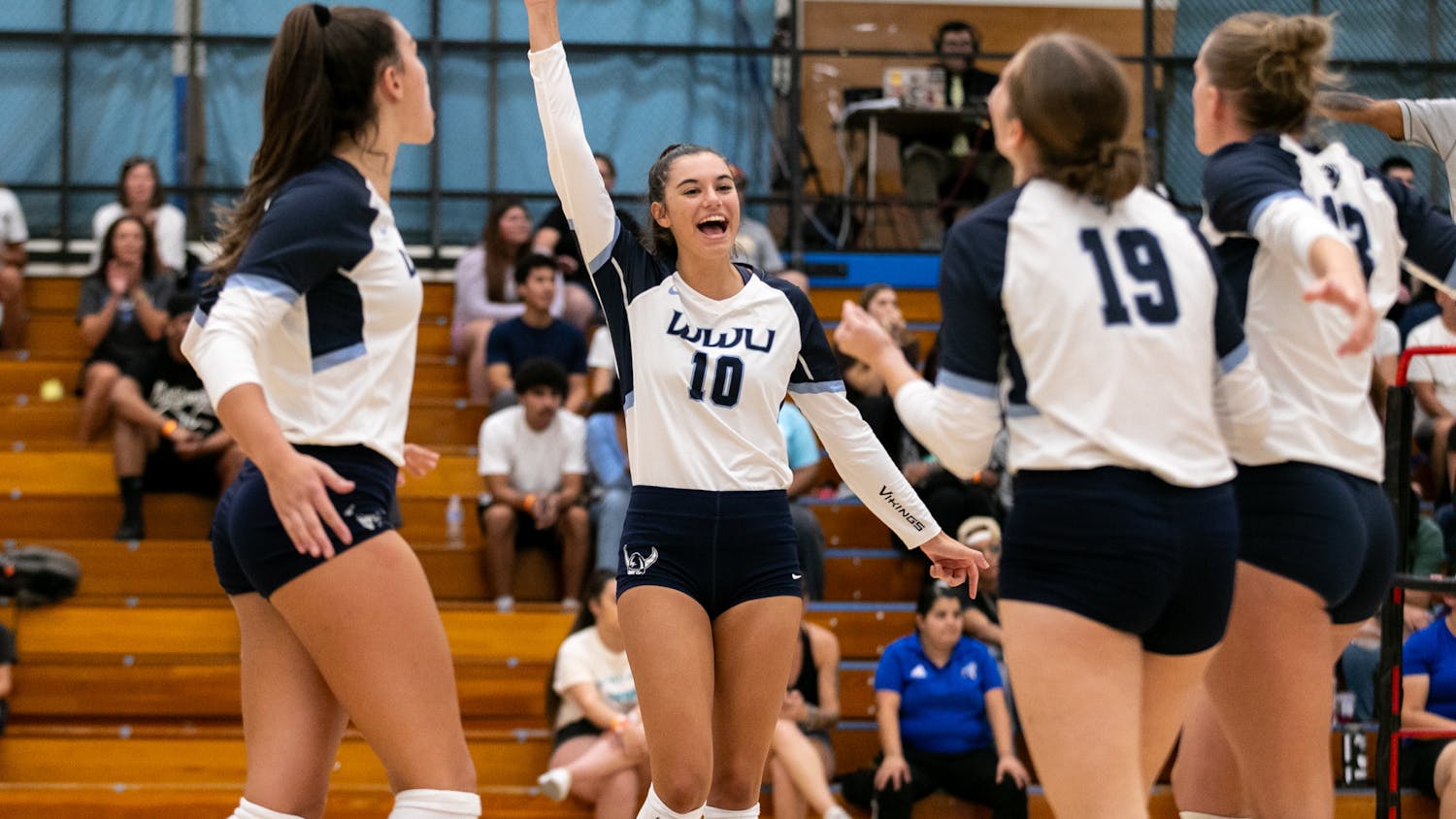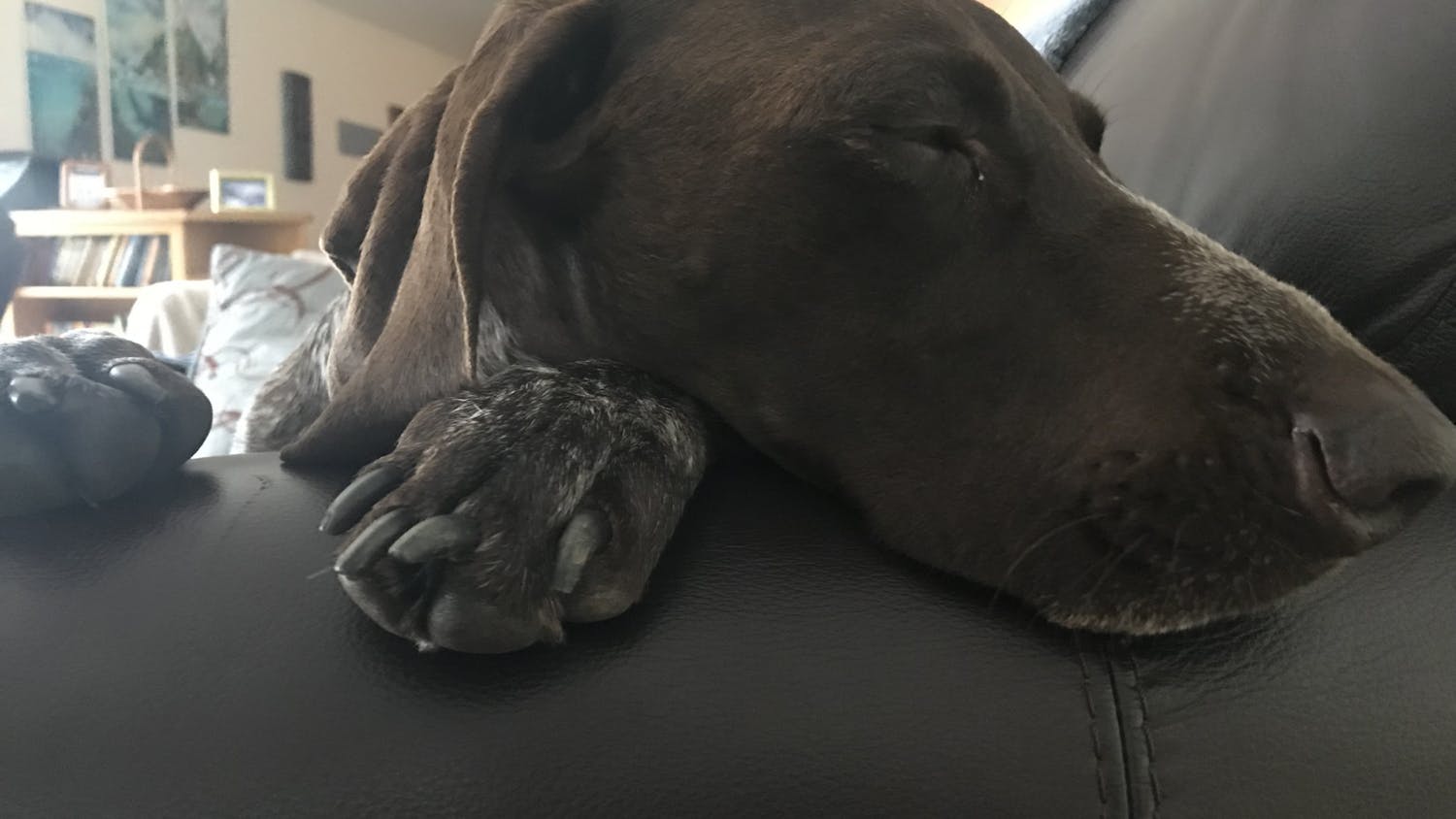By Carina Andrews
The Veterans Services Office at Western once was as a single desk next to the registrar's office in Old Main and gradually grew to what is now.
Transitioning into higher education is a difficult process for any student, but even harder for veterans.
The office was created six years ago to support veterans with community, certification and paperwork.
Western was identified as a “Military Friendly School” for the eighth year-in-a-row in December by Victory Media’s Military Friendly rating system.
The office is run by Ann Beck, assistant director of veteran services, and Wendy Gegenhuber, school certifying official.
According to Beck, the office served around 435 students in fall 2017, 210 of whom were veterans, with the remainder being children and spouses.
Ashton Ockert, a Navy veteran who just started her first quarter at Western, is one student who uses the office.
“With transferring out of the military into a university for the first time, they held my hand and walked me through. Any annoyance, call or email I had, Wendy [Gegenhuber] and Ann [Beck] were on top of it,” Ockert said. “They completely prepared me for coming here. I wasn’t in the dark with anything.”
Phil Fox, an Army veteran and junior at Western, also uses the office.
“There is at least always three or four people [in the office] that seem genuinely happy to see me every time I show up,” Fox said.
Beck started working for the office in the summer of 2014.
Beck became interested in supporting veterans closer to the time they left the military after working with veterans experiencing homelessness in Whatcom County.
“If we are able to reach folks earlier to their release date and make sure they are linked with all the support services they need early on, then maybe we could help avoid the issues that came up for many of the veterans who were homeless,” Beck said.
The office offers support for student veterans and dependents of veterans in many ways ranging from academic advising, working with disAbility Resources and the Department of Veterans Affairs and Western, and simply by being a place for veterans to gather and be part of a community, Beck said.
“They completely prepared me for coming here. I wasn’t in the dark with anything.”
ASHTON OCKERT, NAVY VETERAN
Russ Thompson, a Marine Corps Veteran and sophomore at Western, said transitioning from the military system to a university was difficult.
“I had the idea that I have the GI Bill and it is going to pay for my stuff, but I don’t really know the logistics of how much paperwork do I need to fill out for it or what do I need to do; and I found out it is really easy - all you need to do is talk to these people,” Thompson said.
Universities fill out an annual survey in the summer regarding their commitment to veterans and their dependents in order to be recognized as a Military Friendly School by Victory Media.
Veterans face many challenges when transitioning from service to higher education, Beck said.
“From what I’ve seen and heard, I think one of the bigger things is going from such a highly-structured environment, like the military, where pretty much every minute of your day is accounted for in some way, to a setting where folks might not necessarily know if you don’t show up to class or notice,” Beck said.
Veterans get used to spending most of their time with the same people who are going through similar experiences, Beck said. Going from that lifestyle, to a university where students have to seek out their own community can be difficult for veterans, she said.
“You might feel [like you’re] floating a little bit,” Beck said.
The office provides a community for student veterans to connect with each other, share experiences and work through their difficulties together. Beck said she believes those connections are the support that student veterans need.
Leo Harron, a veteran sergeant in the reconnaissance community, said he found it easier to make connections with students while he attended Whatcom Community College, because there were more students around his age compared to at Western.
“At Whatcom there were more people that, so I’m 32, there were more people that were my age and stuff that I could talk with and hangout with and stuff like that. Opposed to here where it's more your average college crowd, so I hang out [at the VSO],” Harron said.
Beck said having a veteran community on campus is beneficial to the growth of the campus as a whole. Veterans that share their experiences with others can give Western students a sense of what is important in life and where their priorities should be, Beck said.
Looking toward the future, the Veterans Services Office wants to help more veterans enroll at Western, Beck said.
The office is currently working on creating short videos that capture the stories of student veterans and why they chose Western. Beck hopes that these videos can be shared around the community and at military bases to encourage veterans to seek higher education at Western.
Also in the future plans is a move from the temporary office location sharing a space with Career Services to a new space that is being built in Wilson Library.
“It will feel like our own veterans center, which I think will be good and give some ownership to our student veterans and to our children and spouses of veterans as well,” Beck said.





